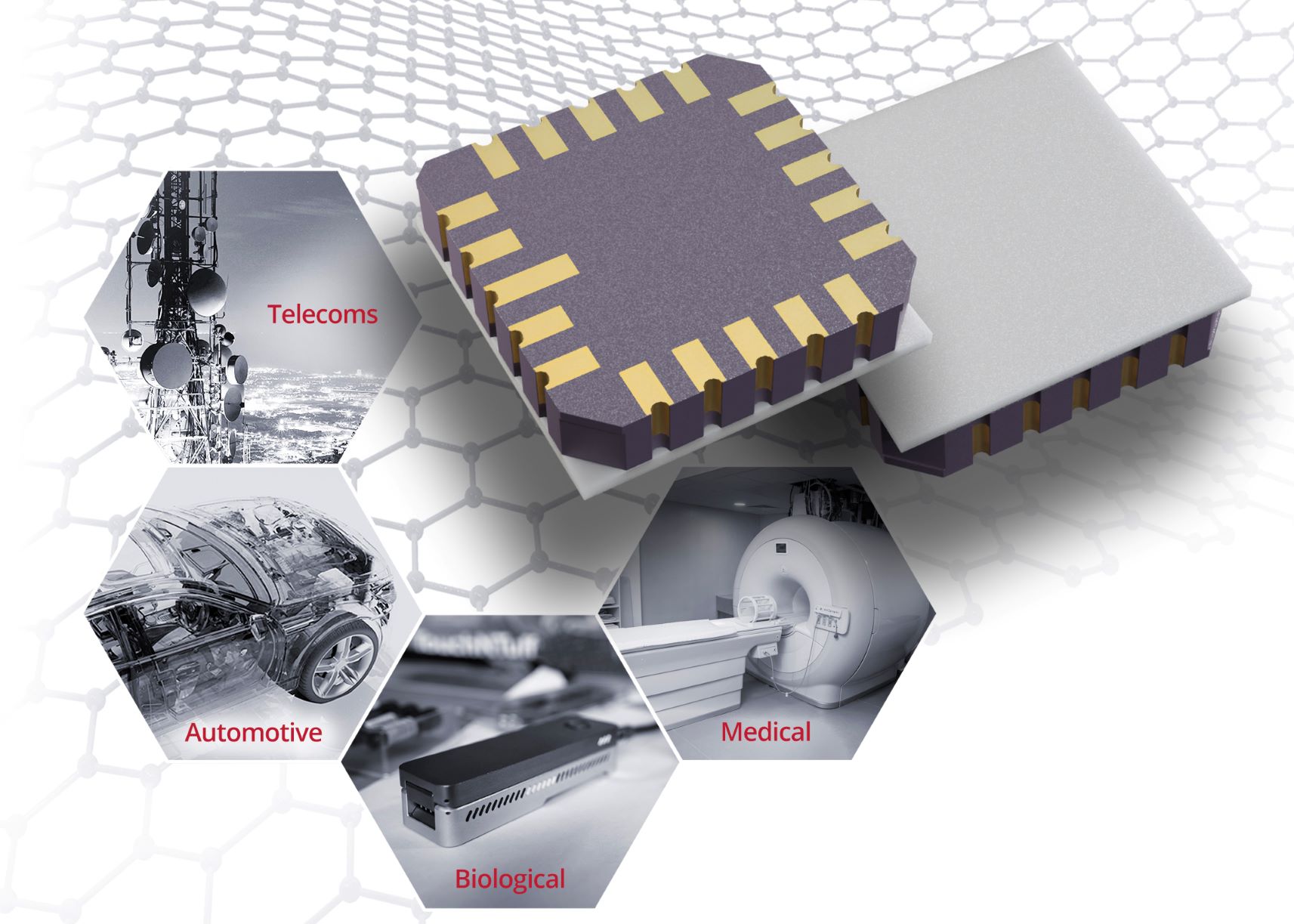The developer of graphene-based technologies and products, Paragraf, has completed a $60m Series B investment round which will enable it to rapidly commercialise its innovative family of graphene-based biosensors.
Graphene biosensors promise to revolutionise diagnostics at the point of care by creating true lab-on-a-chip technology. Paragraf’s graphene biosensor development roadmap includes single-chip devices which will provide instant detection of a very wide range of biomolecules, including DNA, antibodies and enzymes. Diagnostic devices based on these novel biosensors will give faster and more accurate results than either the immunoassays or PCR (polymerase chain reaction) diagnostic tests in common use today. As graphene detects via electronic rather than optical means, graphene biosensors do not require complex sample preparation, and results can be produced in minutes at the point of care.
The new financial backing from existing and new venture capital investors will enable Paragraf to work with partners in the medical devices and healthcare industries to accelerate the delivery of commercial graphene biosensors for medical use worldwide.
Paragraf is the first company to develop a cost-effective, scaleable technology for the mass production of consistently high-quality, contamination-free graphene on semiconductor industry-standard wafers. Paragraf already uses this technology to produce graphene-based electronics devices such as Hall sensors which offer ultra-low power, very high sensitivity, low noise and high accuracy.
Graphene, a pure, biocompatible material, shows very large changes in conductivity when ionic molecules attach to it, enabling the creation of biosensors which offer remarkably high sensitivity to DNA, antibodies and enzymes.
Paragraf’s highly reproducible graphene manufacturing process is compatible with established semiconductor processes, which allow multiple test cells to be fabricated on a single chip. This means that multiple tests can be performed from a single small patient sample, improving the patient experience and diagnostic accuracy, and accelerating the process of diagnosing multiple conditions.










